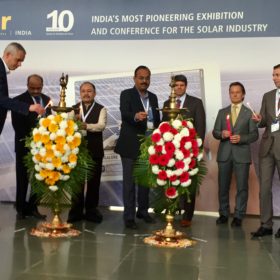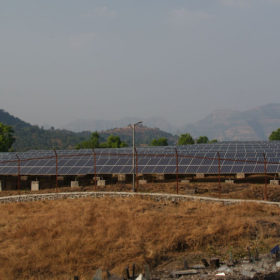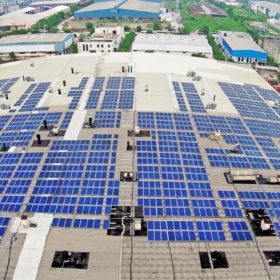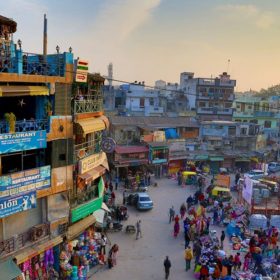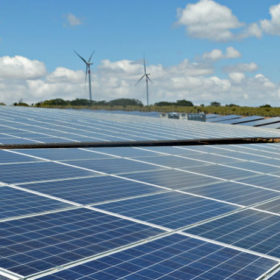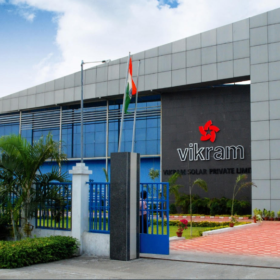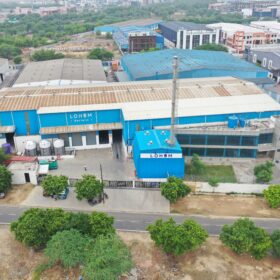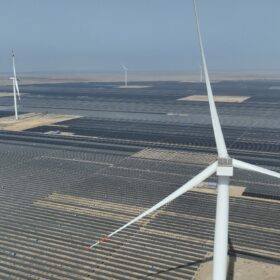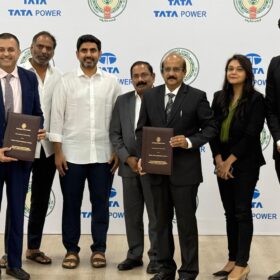10th Intersolar India gets underway
With yellow marigolds in large terracotta pots, colorful metal swans pinned to the walls, speakers in natty pin stripes and swarms of eager visitors, the 10th Intersolar India began a tad late, but on a high note at the Bangalore International Exhibition Centre (BIEC) in Bengaluru, often dubbed the Silicon Valley of India. Karnataka’s successes were a key talking point, while the importance of EVs and storage was underlined.
Uttar Pradesh calls for $809 million private investment for 4 GW solar project
The Uttar Pradesh Government is looking for private investment worth Rs 55 billion (UD$809 million) for the proposed Bundelkhand Green Energy Corridor, which is expected to generate 4 GW of solar power.
Maharashtra discom issues 1 GW tender with tariff cap
The Indian state is looking to install 1 GW of new solar PV power under a new tender issued. A ceiling tariff of Rs 2.80 (US$0.039) has been set.
Green Climate Fund signs $100 million pact for India’s rooftop solar
The Green Climate Fund (GCF) and the National Bank for Agriculture and Rural Development (NABARD) have signed an agreement to infuse US$100 million into an ambitious $250 million project designed to unlock private sector initiatives for the creation of rooftop solar power capacity across India.
Rooftop solar grows by 75% to add 1.5 GW of new capacity
Maharashtra (473 MW), Tamil Nadu (312 MW), Karnataka (272 MW), Rajasthan (270 MW) and Uttar Pradesh (223 MW) are the top five states accounting for 54% of the total market—according to Bridge To India’s latest India Solar Rooftop Map report
Just two bidders for 1.2 GW wind-solar hybrid project
India’s much-hyped first wind-solar hybrid auction found just two bidders, with 360 MW of the 1,200 MW finding no takers at all. This is the second time the Solar Energy Corporation of India (SECI) has held this auction, after the first round in May failed to attract bidders.
Auroville search engine will crowdfund solar power for 100 villages in Tamil Nadu
Sustainable development expert Auroville Consulting has launched the Solar Village Search Engine to help fund its Solar Village Initiative, which aims to power 100 villages in Tamil Nadu with solar by the year 2030.
Tariff dips further in Uttar Pradesh
Ever tumbling panel prices have brought a fresh round of low solar power tariffs after an earlier 1 GW super tender was annulled in the state. The latest reverse auction was oversubscribed by almost 50%.
Exide Industries JV partner gets debt restructuring lift
Swiss battery maker that intends to bring production lines to Gujarat has been helped along in a planned reduction of its debt pile by its domestic authorities. The way is now clear for a shareholder vote next Tuesday.
MNRE launches 23 GW of solar projects in Leh and Ladakh
The Ministry of New and Renewable Energy has reevaluated the solar potential of the region, in the light of steepling falls in the cost of generating solar electricity. The big push will start with 7.5 GW of new capacity, with a request for selection expected within a fortnight.
